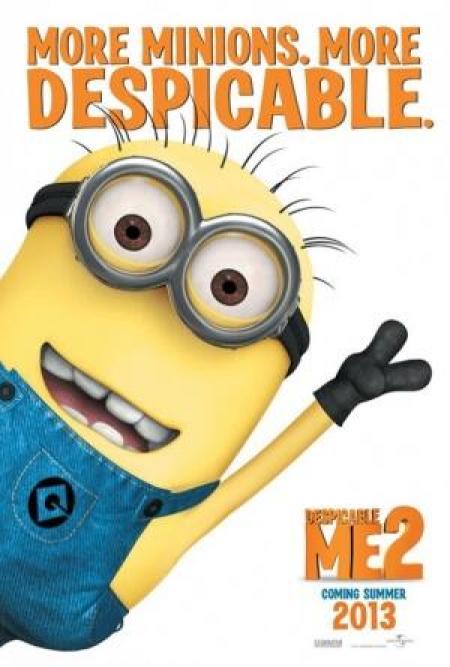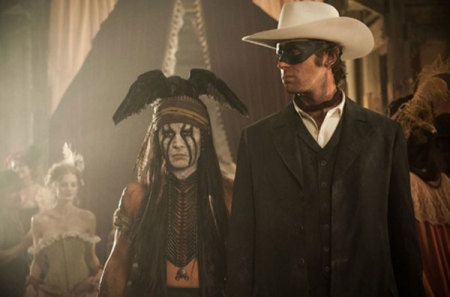'Despicable Me 2' Crushes 'The Lone Ranger': Christian Theme Movie Wins at the Box Office

Universal Studio's "Despicable Me 2" beat out Disney's expensive western "The Lone Ranger" on Wednesday. A prominent reviewer argued the light comedy's Christian elements beat the heavy action flick's pagan and immoral themes.
"This is what we expected," said Dr. Ted Baehr, chairman of the Christian Film and Television Coalition and Editor-in-Chief of Movieguide, in an interview with The Christian Post. "Two years ago, when 'Despicable Me' opened, it got terrible reviews," but Baehr marked it for a winner nonetheless.
"This wasn't a surprise to me then, it's not a surprise to me today," he said, bringing in the sequel's victory over the multi-million dollar action flick.
It must have surprised the studios, however. "Despicable Me 2" cost $76 million and already grossed nearly half that on Wednesday, closing at $34.3 million. "The Lone Ranger," however, bit the dust at $9.7 million – less than 5 percent of its cost, $225 million.
To explain the switch, Baehr pointed to the films' divergent themes.
"We said it was going to be great – it was the difference between a guy who's despicable saved by goodness, by prayers and the love of three little girls, and a guy who comes back interested in justice and doing good but gets corrupted by criminality and all the forces of darkness," he argued.
In the original film, prayer played a central role in the plot. The writers, Baehr recalled, "insisted on the prayer in the first one," and that "probably made the movie."
"Even the bad guy says he'd rather be on the side of family, on the side of good." Not to spoil too much, "Despicable Me 2" culminates in "a wedding in a church with a priest."

"The Lone Ranger," by contrast, attracted the terms "Pagan" and "Anti-Christian," and many reviewers – Baehr among them – considered it a betrayal of the hero's character. "When the values are lost and everybody capitulates to evil, then you've got a problem," he said.
Baehr regrets that he has to attack the film. He knows producer Jerry Bruckheimer personally. "It breaks my heart that he made a bad film," he said. But when Bruckheimer was asked about his competition, the producer replied, "I hope they do well," adding "if they do well, people will come to theaters."
The real reason behind this twist of fortunes, Baehr argued, is the market value of Christian themes. "Jesus sells," he said. Quoting Philippians 1:15, he noted, "Paul said we don't know why the gospel is preaches – out of greed or out of envy," but the spread of the good news is a work of God, whatever the human motive.
On Plugged In, a movie review site run by Focus on the Family, reviewer Bob Hoose also praised the film, but also mentioned a drawback, "some slightly off-color humor." He lists "androgynous cross-dressing jests and naked minion backsides, gaseous gags and poo-poo giggles." These crude, teenage jokes "don't really smell the place up," but they do render "this otherwise delightful film's family-affirming moments and its happy-ending bouquet a tad less appealingly fragrant."
Baehr dismissed these concerns. "If somebody sees something salactious here, they're probably reading into it," he said.
"There's no raunchiness," he added. "If you want raunchiness, look at the movie Ted – there's bestiality."
When it comes to his Movieguide reviews, "we don't do thumbs up or thumbs down," he explained. "We're trying to develop discernment."
He did note "moderate violence – cartoon violence," but added "there's no sex it it," and "there's nudity [only] because the minions are nude all the time."
Nevertheless, he defended Plugged In's review as essentially valid, coming from a similar Christian perspective. "We have too much infighting in the church," which is "the bride of Christ."
"You wouldn't criticize the bride – why would you criticize the church?"





















